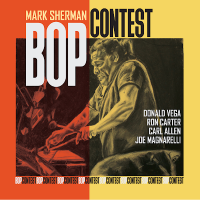Home » History of Jazz Timeline: 1928
History of Jazz Timeline: 1928
On February 7, federal agents raid a dozen of Chicago's North Side nightclubs. They take names of everybody that is caught with alcohol. They had already closed a number of the South Side black-and-tans. This is all part of a "get tough on booze" policy of the new Republican mayor William Dever (Big Bill Thompson's successor). Chicago will soon fall as the Jazz capital.
The last of the Hot Fives and Sevens are recorded by Armstrong and the rest. As hard as this may be to believe, in many respects, it's all downhill from here for Armstrong.
Armstrong drops the New Orleans style completely and with it, he drops the New Orleans players except for Zutty Singleton. Landmark recordings are made by Armstrong with Earl Hines on piano. Hines is almost the equal of Armstrong in terms of Jazz talent and the result is such memorable recordings as "West End Blues" (many believe this to be the top Jazz recording of all times) and "Weather Bird Rag", both Joe Oliver tunes. These and others can be found on Columbia CD Louis Armstrong Vol 4. - Louis Armstrong and Earl Hines or the Classics CD Louis Armstrong and His Orchestra 1928-1929.
In contrast, Jelly Roll Morton's and Joe Oliver's music is already on the way out, soon to be replaced by Swing.
On November 30, in Cleveland with the Whiteman Band, Bix Beiderbecke passes out in the middle of a tune. Another band member (Charles Margulis) steadies Bix to keep him from falling over. Bix wakes up and in his confusion, takes a poke at Margulis. Whiteman witnesses this and sends Bix back to the Palace Hotel where he becomes violent due to delirium tremens and is put under a nurse's care.
Earl Hines records with Armstrong and then with clarinetist Jimmy Noone's Apex Club Orchestra. Then Earl begins work as a soloist for Q.R.S. (a piano roll company). All of Earl's recordings during this year are landmark recordings which will establish his reputation.
Earl Hines forms his own big band. Earl will be a big bandleader until 1947.
The Benny Moten Band is now a Swing band and is acknowledged by most to be the best in the southwest. Some, however, considered Walter Page's Blue Devils to be better. It was reported that the Blue Devils cut the Moten band in one memorable Kansas City band battle. This is not surprising considering that the Blue Devil's were Walter Page on bass, Buster Smith (Charlie Parker's early idol) on alto sax, Eddie Durham on trombone, Hot Lips Page (no relation to Walter) on trumpet, Bill "Count" Basie on piano and vocalist Jimmy "Mr. Five-by-Five" Rushing to round it out (no pun intended).
Important bandleader Fletcher Henderson suffers a concussion in an automobile accident. After this, Fletcher's interest in and tolerance for business matters declines from previous low levels. This might account in part for other bands coming to the forefront.
Sidney Bechet is now with the Noble Sissle band.
Twenty year old clarinetist Benny Goodman is still with Ben Pollack as is trombonist Jack Teagarden.
Johnny Hodges joins the Duke Ellington band on alto sax.
Armstrong records "West End Blues" on June 8.
Teenager Billie Holiday hears Armstrong's West End Blues and is inspired.
Bessie Smith records "Poor Man's Blues." This is a harbinger of things to come. By next year, most people will be poor as a result of the depression.
Bessie Smith begins her downhill slide. Classic Blues is on the way out.
Ma Rainey records Blame it on the Blues and Leavin' this Morning with Tampa Red on guitar.
The word bop appears in the song Four or Five Times by Mckinney's Cotton Pickers.
Django meets violinist Staphane Grapelli and makes his first records which have no Jazz value.
Django Reinhardt is married at eighteen. He lives in a caravan near a cemetary. His wife sells silk flowers to support them. One night, Django is trying to remove a rat and he catches the flowers on fire with a candle. He burns his legs and his left hand badly saving his wife. His left hand never completely healed with two fingers partially paralyzed. He, nevertheless became a great guitarist in months. Stephane Grapelli says that the injury probably improved Django's playing because it slowed him down causing him to be more thoughtful. If you've ever listened to the speed of Django, it is hard to imagine him playing faster.
Stan Kenton is now writing arrangements for Los Angeles bands.
Lenny Tristano is by now eight years old and is completely blind.
Dancer George "Shorty" Snowden comes up with a new dance that is filled with "breakaways." The dance will be named the Lindy Hop after Charles Lindbergh.
Future Hard Bop pianist and bandleader Horace Silver is born in Norwalk, Connecticut on September 2.
Trumpeter and Flugelhorn player Art Farmer and his twin brother Addison are born in Phoenix, Arizona.
Trumpeter Wild Bill Davison is currently playing like Bix on Smiling Skies with the Benny Meroff band.
Spanish/Fillipino, Fred Elizade persuades the Savoy Hotel management in England to let him bring in a Jazz band with American trumpeter Chelsea Qualey, sax players Bobby Davis and Adrian Rollini, and an English rhythm section.
Bing Crosby, an early Jazz fan, visits Harlem to hear Ellington and other authentic Jazz players.
Keyword Search
Disclaimer: Though we have checked our facts, this timeline may contain erroneous information. If you discover errors or omissions, please bring them to our attention.









